Range Rover private school parents have come under fire for allegedly increasing pollution on their school run – but furious locals have pointed the finger elsewhere.
Many residents of Croxted Road in Herne Hill – where debilitating traffic jams are a twice-daily occurrence – blame the posh SUVs ferrying their kids to nearby private schools including famous Dulwich college.
Private schools are behind a near 50% increase in pollution and traffic, despite serving half as many pupils as state schools, says data from local parent campaign group Solve The School Run.
Dulwich College, where numerous scenes from the Harry Potter film franchise were famously shot, stands at the top of Croxted Road.
But locals are actually united against a bigger road menace – the low traffic neighbourhood road closures.
Solicitor Saoirse Kerrigan, 47, told MailOnline: ‘The private schools definitely do affect the traffic.
‘I’ll often step outside when they’ve broken up and think, “What’s going on? Where’s all the traffic? Has the road been closed? Has there been an incident?” And then I realise the private schools are on holiday.
‘[But] The LTNs have had a massive adverse impact. We’ve now got nose to tail traffic on our doorstep and it wasn’t like that when we moved here 12 years ago.
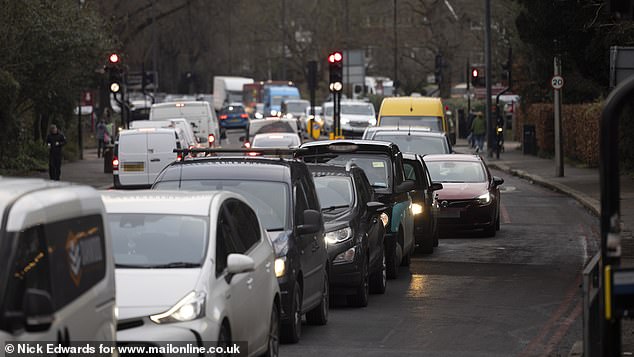
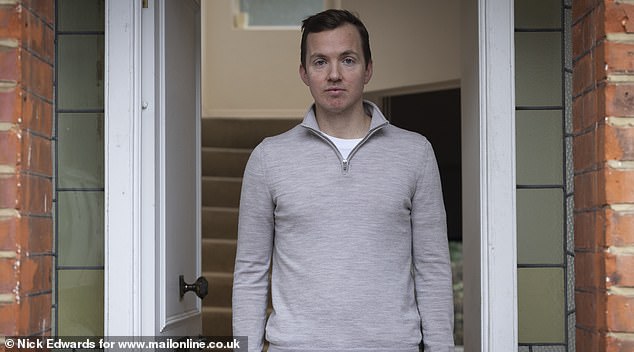

‘It’s gotten much, much worse. We never used to see this kind of traffic. With an asthmatic child, I’m very anxious about it and I question whether I’m doing the right thing raising small children in this environment.’
Strategic road closures designed to limit traffic in residential areas are adversely increasing congestion on Croxted Road, which is surrounded by a number of ‘school streets’ closed to cars and vigilantly manned by CCTV.
A boundary road, Croxted is governed by both Southwark and Lambeth councils.
‘Bit by bit, roads are being closed by both Southwark and Lambeth. I’m not opposed to it in principle but because we’re on a boundary road, all the traffic has been diverted down this street.
‘The two councils don’t talk. They haven’t coordinated this at all, which is really depressing.’
Nils Penny has been so affected by the pollution that he is selling his Croxted Road flat to move to Yorkshire in search of ‘cleaner air’.
The 35-year-old said: ‘The traffic has definitely been a factor in our decision. In the mornings, the traffic from Herne Hill literally comes all the way back up the road.
‘They’ve shut loads of roads around here which has caused a lot of anger from locals because this is essentially where a lot of the displaced traffic now comes. The pollution has gone way up.
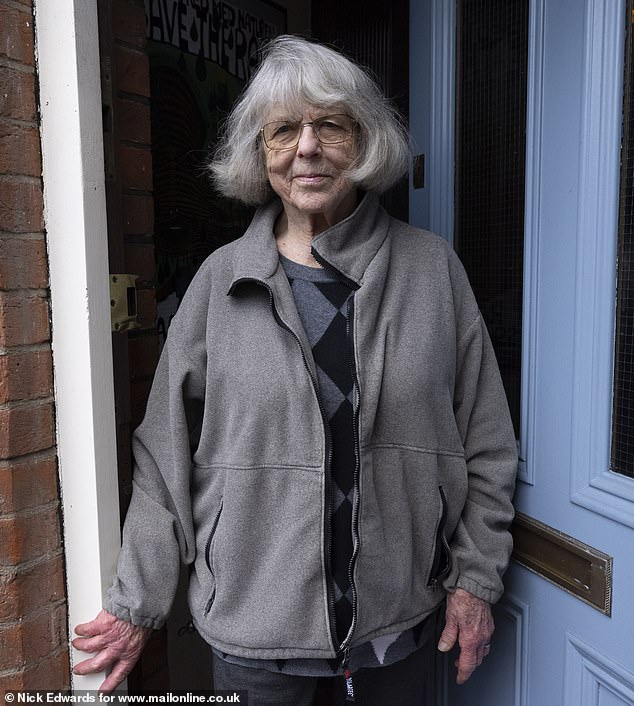
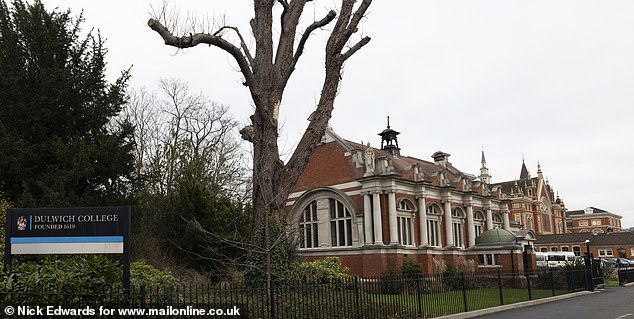
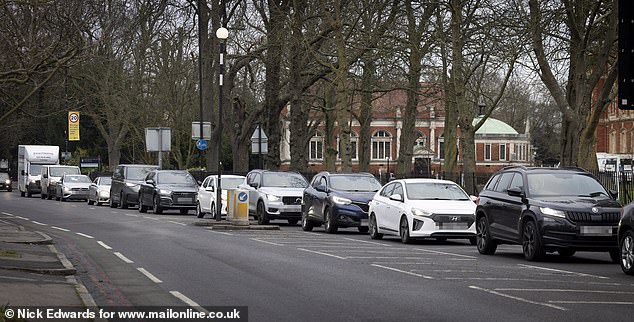
‘The parking has gotten very difficult and even people who live here can never find a spot.’
Mr Penny also blamed the lack of efficiency on Southwark and Lambeth councils’ shared custody of the road.
‘That’s not helped with the traffic issues because every time someone complains, the council says “well, it’s not in our boundary” so it’s been a bit of a nightmare.’
A number of local campaign groups have cropped up in an effort to tackle the issue. The West Dulwich Action Group is raising money to sue Lambeth Council.
The road closures have also created a dangerous sense of urgency as drivers speed to meet the time limits to avoid a fine.
Astrid Chapman, 87, who has lived in the area for 50 years, said: ‘I was almost practically mowed down by a car that wasn’t stopping at the corner. I looked at my watch and it was a minute to three – they just wanted to dash across.
‘I really wish that they would sort this road closure thing because it is pretty dire, it’s certainly not working.
‘I’m old and my dog is getting older, so I drive to the park in the mornings but I just cannot get out until half past nine. It’s totally crazy with all these ad hoc closures here and there.’
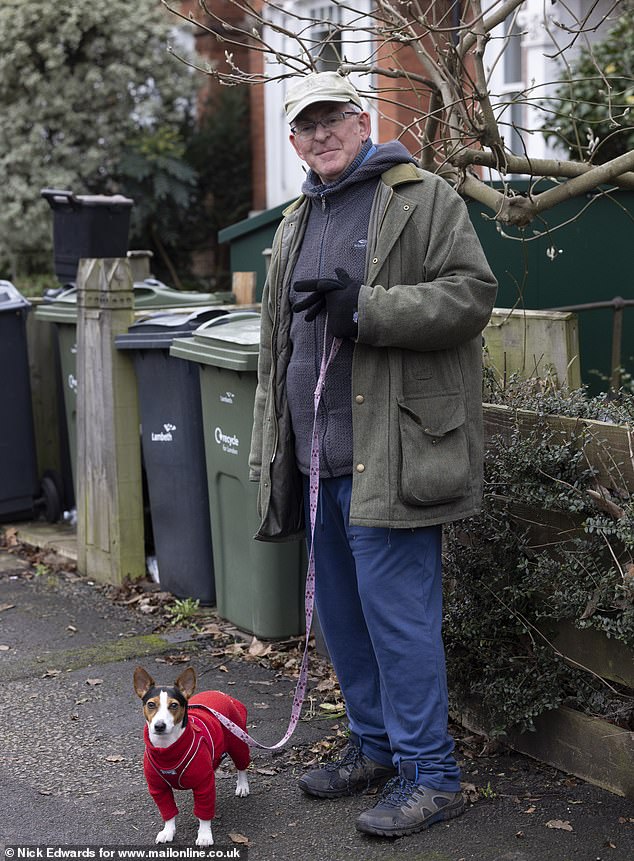
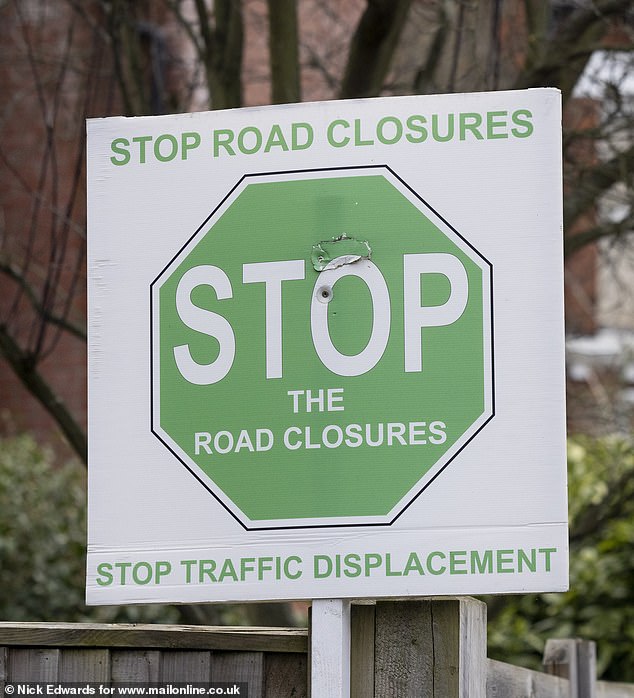
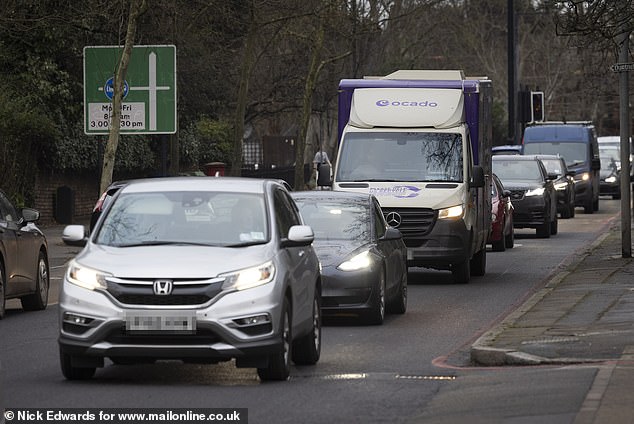
Breaching the road closure rules costs £190, which goes down to £90 if paid within two weeks of the fine being issued.
Childminder Sarah Smith has already been fined several times this winter.
The 43-year-old said: ‘You forget it’s only half three when it’s already dark, so you drive through. After I realise what I’ve done, I quickly reverse back out to the roundabout but they still fine me.
‘It’s penalising people who don’t have that kind of money.’
Ms Smith’s colleague Eva Torok, 45, is convinced the councils are committed to the LTNs as a money-making scheme.
‘They do it to make more money. They’re making a massive income and they’re sneaky about it.
‘Recently, a little road near me closed suddenly overnight but I didn’t receive any leaflets in the post or anything. I didn’t know so I took my usual route and I got a fine.
‘I’ve lived here for 20 years and I’ve never seen anything like this traffic – it’s become really bad.’
Nick West, 65, is concerned that local businesses will face devastating losses if customers can no longer access them as easily.
‘The local businesses are very worried about the flow of customers, and the impact that all these endless restrictions are going to have.
‘I think it’s just a form of indirect taxation. I see it as a way that they can raise revenue by fining people for driving down roads which they’ve arbitrarily closed.’
Mr West said he can no longer access the road he lives on via many routes due to road closures, which is concentrating pollution onto busier streets like Croxted.
‘And the signs that they put up are virtually impossible to see if you’re driving, because if you’re driving along a brick road like this, you can’t slow down to read the signs.’
Southwark councillor James McAsh, said: ‘We are committed to improving air quality and lowering emission levels but we understand the importance of striking the right balance that takes into the views of our diverse community.’
A Dulwich College spokesperson told MailOnline that only 16% of its pupils travel to and from school by car.
A Lambeth council spokesperson said: ‘We carefully monitor traffic conditions and work closely with neighbouring boroughs, particularly where boundary roads are involved – with Southwark Council in this case. We are currently developing options to improve safety and accessibility on Croxted Road.’

